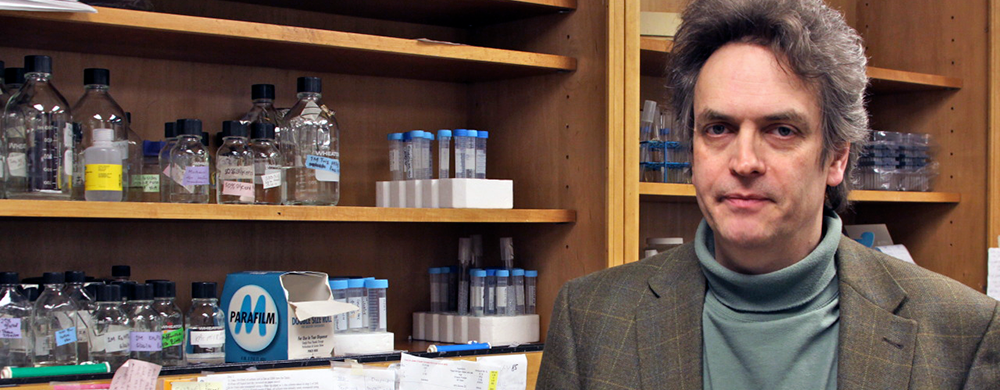Posted on February 15, 2018 at 11:32 AM, updated February 15, 2018 at 11:32 AM Print
$2 million NIH grant enhances biological research

A team lead by Dr. Valentin Börner, associate professor of Biological Sciences at Cleveland State University, has received a $2 million grant from the National Institutes of Health to increase our understanding of how the function of a protein complex called proteasome impacts chromosome segregation in meiosis. Meiosis is a key process that affects sexual reproduction, fertility and the development of birth defects. The research could also have a significant impact on the treatment of numerous types of cancers.
The proteasome is a highly sophisticated protease complex of the eukaryotic cell that is designed to carry out selective degradation of protein substrates. The protease "gobbles up" proteins after they have performed their cellular function. The proteasome is essential for many cellular processes, however, until recently, little was known about how the proteasome impacts meiosis, the central cell division that generates egg and sperm in sexually reproducing organisms, including humans.
The project at Cleveland State University, which also includes researchers from the University of Pittsburgh, builds on the Börner lab's recent discovery of a direct connection between proteasome activity and the meiosis process. Those findings were published in the prestigious journal Science in January, 2017. The new project will work to identify the specific role the proteasome plays in meiosis, including identifying the specific proteins the protease removes as chromosome segregation and cell division occurs. The planned studies will also seek to assess the impact of proper proteasome function on reproduction and how defects in this process could be a cause for infertility, miscarriage and certain genetic diseases.
"We now know that the proteasome attaches itself to chromosomes during meiosis and disposes of used proteins as part of the process," adds Dr. Börner, who is a member of CSU's Center for Gene Regulation in Health and Disease. "The next step is identifying what specific material is being removed, how this allows meiosis to progress, and what impact the process has on overall sexual reproduction."
Dr. Börner also points out that proteasome inhibitors are now being used in cancer therapy, most notably multiple myeloma. A better understanding of proteasome functions in chromosome stability will allow for more focused targeting of these drugs to better inhibit cancer growth.
"We are now undertaking a new path in genetic science that could lead to a better understanding of reproduction and improved treatments of reproductive diseases and numerous types of cancer," Dr. Börner adds.

